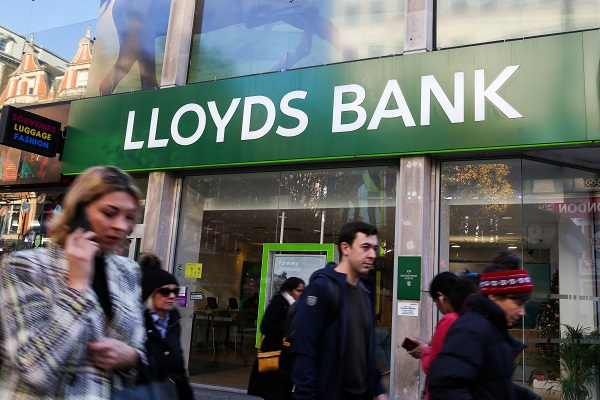Lloyds Bank beats expectations in Q1 and issues upgrade
27th April 2022 08:03
by Richard Hunter from interactive investor
It's been a decent first quarter for Lloyds Bank with plenty to be happy about, but the shares are being buffeted by things it can control and plenty that it can't. Our head of markets analyses the numbers.

Against the backdrop of an unstable UK economy and an increasingly squeezed consumer, Lloyds Banking Group (LSE:LLOY) has made a generally impressive start to the year.
At the headline level, the main blot on the landscape in these first-quarter numbers is the return of credit loss provisions. Although the impairment figure of £177 million is lower than had been expected, it nonetheless compares with a release of £360 million in the corresponding period last year, with this £537 million swing taking the shine from profits.
Pre-tax profit of £1.62 billion for the first three months of 2022 compares with a previous figure of £1.9 billion, although it has beaten expectations of a number of £1.43 billion.
- The Week Ahead: Lloyds Bank, Sainsbury’s, AstraZeneca, Persimmon
- 60 reasons to sell your UK shares
- UK bank bargains beckon as rate rises set to boost results
Indeed, stripping out the impairment figure, underlying profit rose by 26%, showing the progress which the bank has been able to make. Some of the sting was taken out by an increase of 12% in net income, driven by more customer activity (loans and especially mortgage growth) and higher interest rates, the latter of which has been to the benefit of the sector as a whole.
Meanwhile, the Net Interest Margin also rose to 2.68% from a previous 2.49%, while the sector-beating cost/income ratio decreased to 52.3% from a previous 57.6%. This was achieved despite a 3% increase in operational costs, which included incremental strategic investment, as announced at the full-year results in February as part of the group’s transformation plan.
The capital cushion, or CET1 ratio also declined to 14.2% from 16.7%, largely as a result of regulatory changes, although the number compares more favourably with the expected level of 14.6%. The liquidity coverage ratio remains strong, underlining the capital strength of the business and, while there was no particular mention of shareholder returns, the current dividend yield of 4.4% remains extremely attractive in the current interest rate environment.
Instead, the increase of capital build has been allocated to an acceleration of pension deficit contributions in the quarter, which the bank saw as the most prudent use of this excess.
It has also prompted Lloyds to upgrade its guidance on outlook, which is a notable call given the current circumstances. It now forecasts better than expected improvements to both the Net Interest Margin, which should be greater than 2.7%, and to the Return on Tangible Equity, which should exceed 11%.
Even so, the instability of the economy is one which has particular resonance for Lloyds, given that it is often seen as a barometer for the UK economy. Its revised economic outlook, which led to the credit impairment provisions, was taken against a backdrop of some uncertainty. While the bank has no exposure to the likes of Russia, it does have credit exposure to companies which are impacted by higher energy and commodity prices, and is therefore monitoring the situation closely for any signs of contagion or business stress.
- Where to invest in Q2 2022? Four experts have their say
- How to find ‘cockroach’ shares that can survive disasters
- HSBC fails to excite with these first quarter results
Prospects for the wider UK economy have held back the share price somewhat, although the shares have managed to post a gain of 7% over the last year, as compared to a rise of 6% for the wider FTSE100.
The company’s fortunes will inevitably be tied to those of the UK, but Lloyds has a tight hand on those factors within its direct control. The market consensus of the shares as a "buy" reflects the ability of the group to contain costs, to continue its strategic investments and to be in a position to benefit from any eventual UK economic recovery.
These articles are provided for information purposes only. Occasionally, an opinion about whether to buy or sell a specific investment may be provided by third parties. The content is not intended to be a personal recommendation to buy or sell any financial instrument or product, or to adopt any investment strategy as it is not provided based on an assessment of your investing knowledge and experience, your financial situation or your investment objectives. The value of your investments, and the income derived from them, may go down as well as up. You may not get back all the money that you invest. The investments referred to in this article may not be suitable for all investors, and if in doubt, an investor should seek advice from a qualified investment adviser.
Full performance can be found on the company or index summary page on the interactive investor website. Simply click on the company's or index name highlighted in the article.